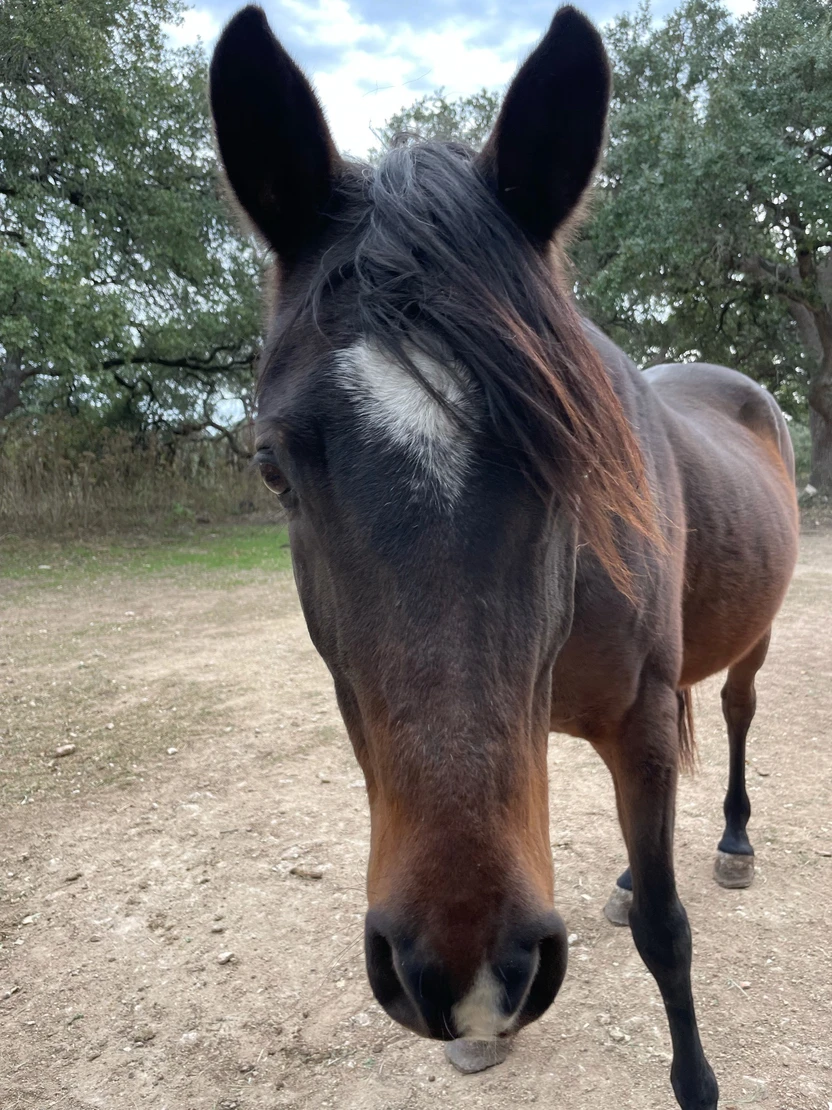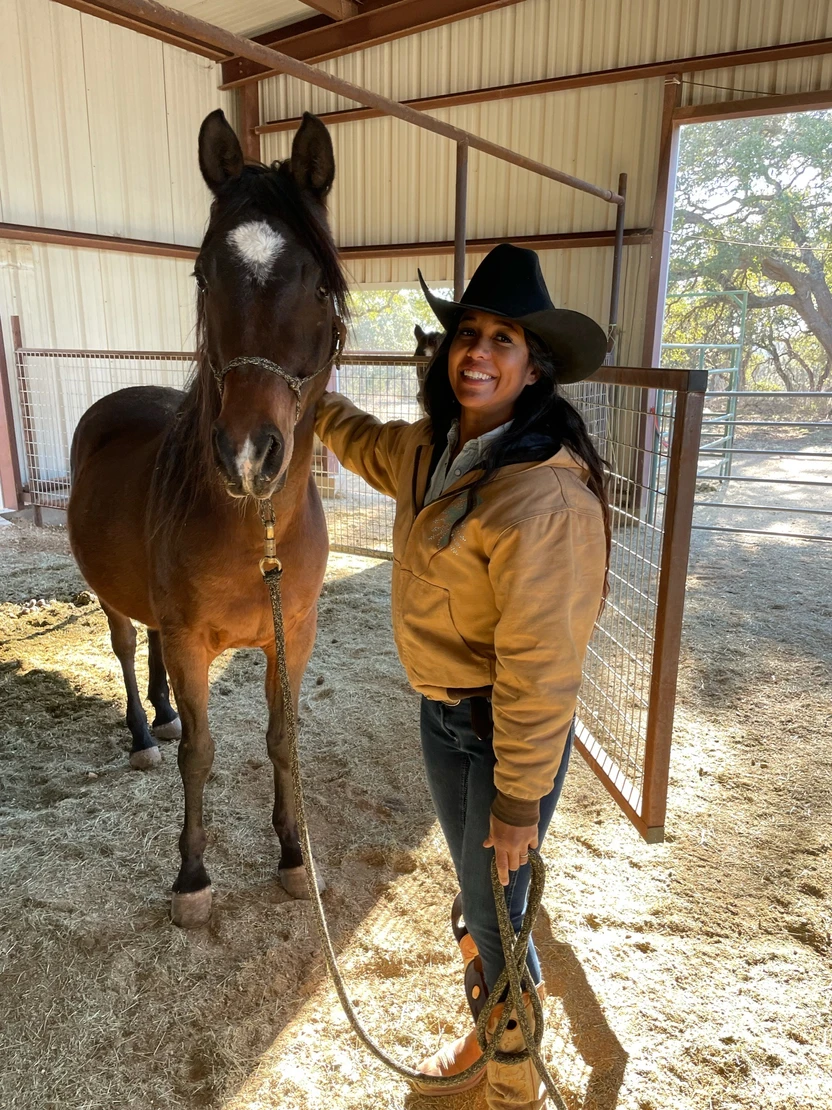Unbound Horsemanship: horses becoming better horses and humans becoming better humans
- Camille Pandian
- Dec 9, 2022
- 4 min read
Updated: Apr 6, 2023

The average person might not know how diverse a herd of horses can be. The truth is, they are just like us- each with their own likes, dislikes, and personality quirks. Especially at a #horserescue like ours, our 4-legged friends come to us with incredibly diverse backgrounds and stories that impact who they are and how they interact with the world.
When working with these ultra-sensitive horses who have come from backgrounds filled with trauma, it is extremely important to be very aware and mindful of every single detail. We must become experts not only of the horses body language and mental-emotional field, but also of their surroundings and environment, where the other herd members are and what they’re doing, and every little detail about our own human body language and emotional experience as well.
To work with #rescuehorses like the ones at our sanctuary, us humans need to be aware of every subtle detail and nuance because the horses themselves are ultra aware of them all the time. Being sensitive herd animals, the #horses are communicating things to each other that could cause one another to have reactions. For instance, one of the more dominant herd members such as Diego or Cante just raising their head and looking at a more submissive horse, like Legolas, could cause Legolas to have a freeze or flight reaction such as tensing up or jumping away. Similarly, if we are near the horses and simply standing near them more assertively with straight legs verses relaxing one leg and standing nonchalantly, that subtle difference can have a large impact on their nervous systems.
The Unbound Method is the philosophy and training program that our horses as Driftwood Horse Rescue and Sanctuary go through.
Just like humans, horses have basic but important social needs. The need to be recognized and honored as an individual and the need to be able to voice opinions and to feel loved and accepted no matter what.
Unbound Horsemanship helps our rescued horses to thrive through calm and settled care, trust, and enriched human partnerships.
Calmness: Many of our horses have lived in a fear state of being for so long. Their brains and bodies need constant reminding that they no longer need to be afraid of their surroundings and of humans. This process requires us humans to move slowly, calmly, and with consistency. Like humans, when horses are in a fear state they are only reacting (fight, flight, or freeze fueled by adrenaline), and not using the thinking (or "genius") part of their brain. As soon as they are calm, they can actually process through something, understand it, and therefore learn from it. We believe that a calm and settled nervous system is probably the most important thing we can teach a horse-- it is really a gift to them. If a horse doesn’t know how to be calm, then they also don’t know how to process and understand things using the thinking side of their brain. Otherwise we may be initiating a behavior over and over again without the horse truly learning or integrating things. This also can lead to the horses bottling up fears and frustrations and lead to long term discomfort. We instead want to be in a continual conversation with our horses where a new concept is introduced and they are really able to process and understand it. Horses are also naturally very fast and reactive, and teaching them to be calm is much harder than teaching them to be fast.
Trust: For learning and partnership to happen, there has to be trust, on both sides. Calmness can not happen without the foundation of trust first. If a horse does not trust you, he will always be reactive and on edge or the opposite, frozen and completely shut down to the point where they are hardly even there anymore. Sometimes we may ask the horse to do something that feels strange or scary, such as putting on a halter, or picking up their feet. But if they trust us humans and truly see us as caretakers, they can learn that these requests may actually benefit them. This consistency and trust increases their confidence to stretch out of their comfort zones, and that confidence increases calmness. In time, the horses will learn that these things result feeling better over all (trimming hooves to make feet and body feel more comfortable, wearing a halter means walking in for meals or being turned out to play in the pasture, riding in partnership with a connected human, that can make body, mind and emotions feel good, etc etc.)
Human partnership: Horse-human partnership is beautiful and mutually beneficial and can strengthen and deepen mental, emotional and physical levels in both the horse and the human. None of the #horserescues come to us with an inherent trust in humans. Most of their experiences with humans have been associated with pain and abuse. Through our time together and with this way of being, the horses slowly begin to gravitate towards healthier relationships with humans and healing from their past experiences. Trusting in human partnership also means the horse remaining calm and turn towards us for guidance when they feel nervous-- they learn to depend on us as members of their own herd. For instance, recently, we have been working with Legolas to follow our leadership and calmly walk past a more dominant horse, Cante's stall. We are encouraging him to walk past with his head low, instead of reacting with fear and rushing past potentially hurting someone else in the barn.
Of course, all of these practices benefit us as humans too. When we encourage patience, presence and steadiness in our 4-legged friends, it forces us humans to stretch those muscles as well. As we encourage our horses to be better horses, we become better people.
Our hope at Driftwood Horse Rescue and Sanctuary is to grow together. We are so excited to introduce our herd to you and for your to follow their stories as they grow and heal. Stay tuned!



Yorumlar